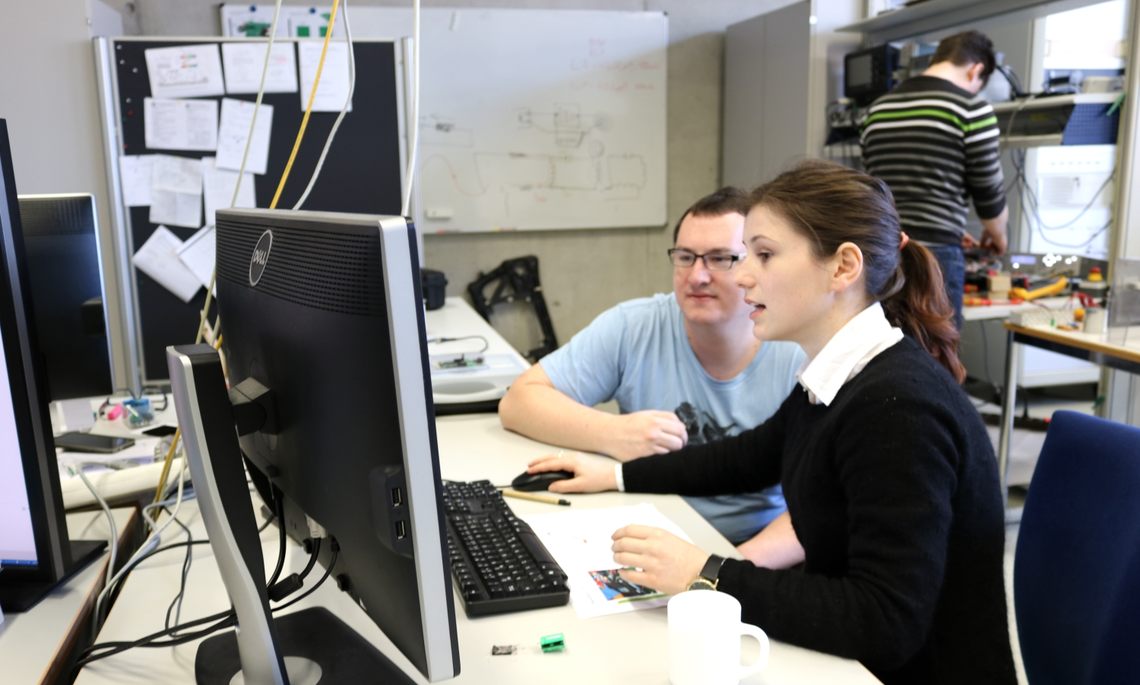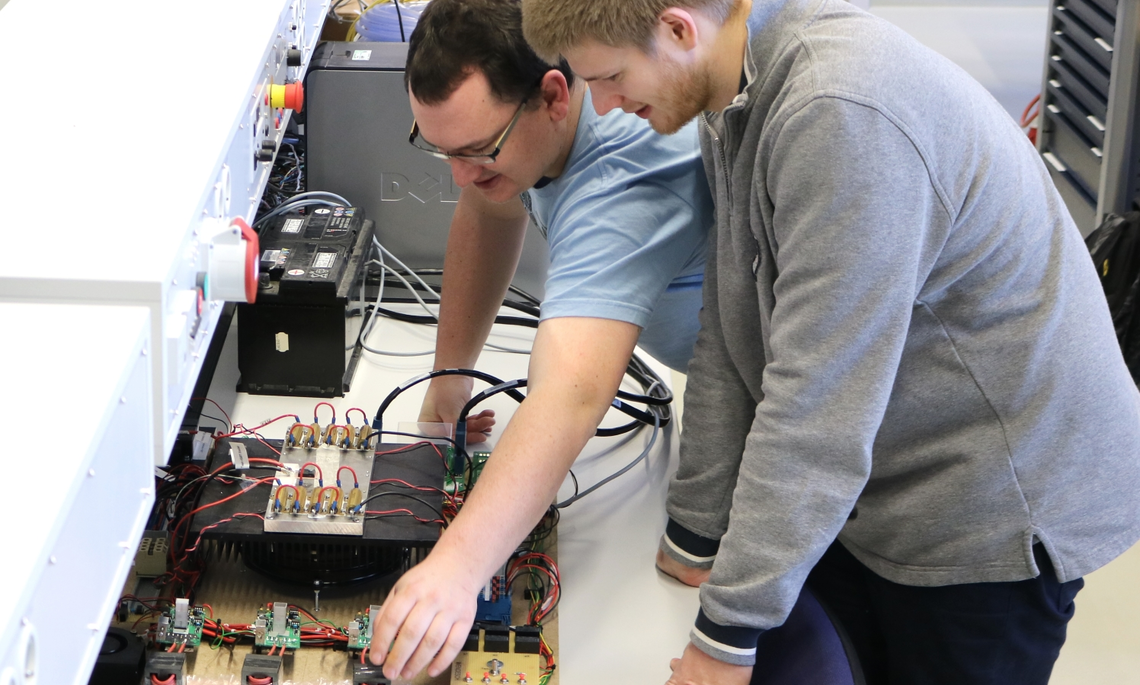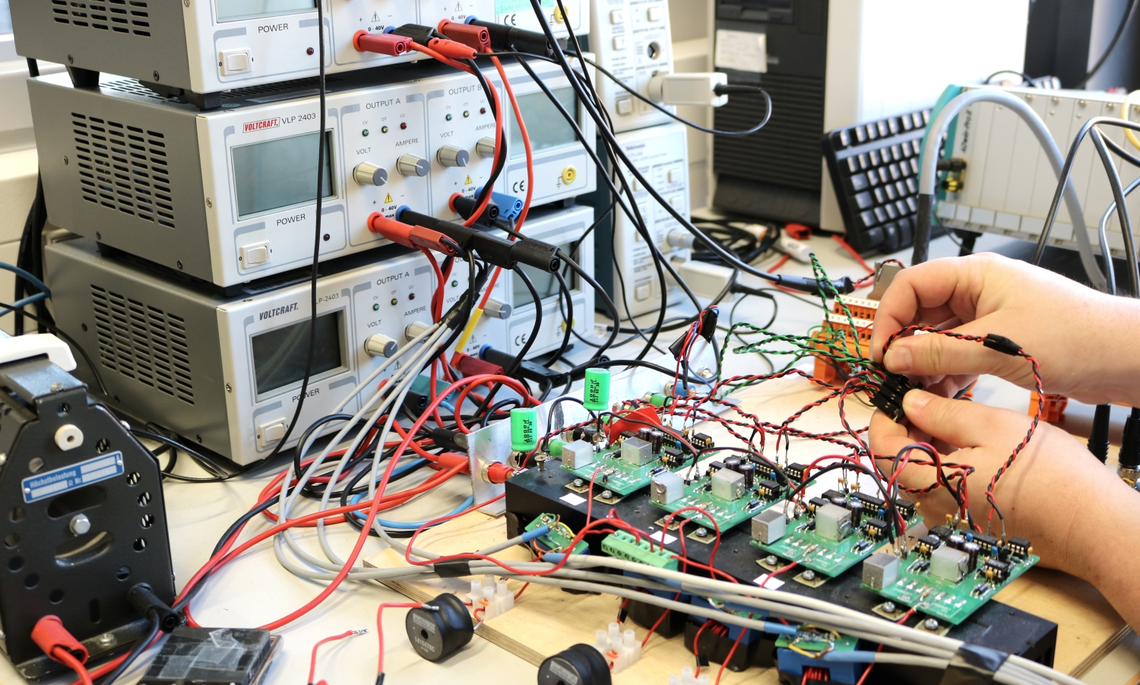In the development process for the automobile industry, simulation and modelling of complex systems play a key role in the ability to develop products quickly and efficiently. The drive train of hybrid and electric vehicles exhibits a high level of complexity as well as many degrees of freedom.
Simulation plays a crucial role in all phases of the development process for these vehicles. Based on theoretical-scientific principles, students learn methods for mathematically depicting all key aspects of electric mobility.The subjects cover the entire spectrum - from the depiction of key components such as electrical machines, power electronics, energy storage systems, gears and combustion engines through to the entire vehicle. The degree programme also teaches analytical competence, methodological competence and the ability to reflect on one's own behaviour and actions as well as management know-how and skills. Graduates of the programme can thereby put their new expertise to practice immediately after completing their degree; or they can choose to begin a doctorate programme or join the science and research field.







![[Translate to English:] Logo Akkreditierungsrat: Systemakkreditiert](/fileadmin/_processed_/2/8/csm_AR-Siegel_Systemakkreditierung_bc4ea3377d.webp)








![[Translate to English:] Logo IHK Ausbildungsbetrieb 2023](/fileadmin/_processed_/6/0/csm_IHK_Ausbildungsbetrieb_digital_2023_6850f47537.webp)


